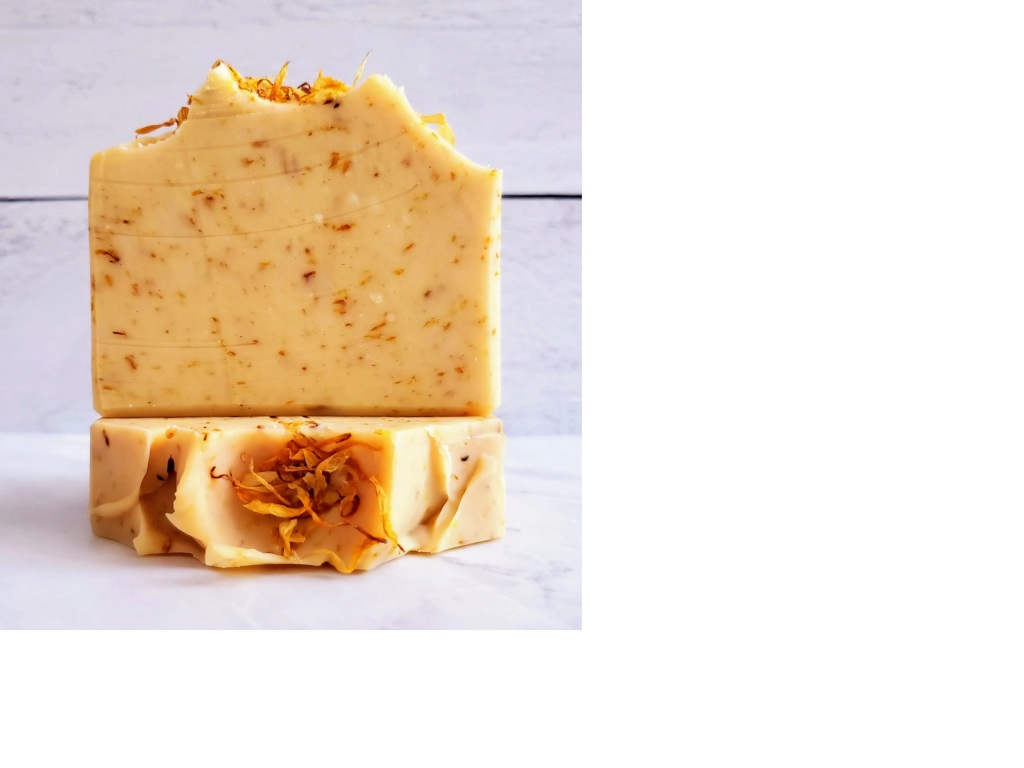
10 types of soap and general useful uses of soap
- Calendula soap has a sedative effect and improves motor skills. The use of calendula soap has a calming effect on the central nervous system, against insomnia, reduces irritability and even has mild antidepressant properties (plus calendula decoctions and infusions). It is suitable for frequent face washing. Choose natural calendula soap without dyes, preservatives and synthetic fragrances. Choose a soap with a base made of pure vegetable oils and without animal fats (that is, waste products contained in most other soaps). Calendula soap is effective against infectious diseases of the female reproductive system by rinsing or bathing. But the gynecologist determines the indications and duration of treatment.
- Visible holes on the walls (most often from nails) are always present if we move pictures or hanging furniture from one wall to another. You will cover the hole if you rub it with solid soap.
- Coconut, lemongrass, mint and lavender soap repels mosquitoes, flies and insects.
- Spruce soap is an excellent preparation for facial care that has an invigorating effect. Soothes the skin and solves problem skin. Spruce soap has a mild natural peeling effect.
- Baby soaps have a pleasant smell. They thoroughly and gently clean delicate children’s skin as well as delicate and sensitive mature skin. Baby soap is an excellent preventive measure in the daily skin care routine. They strengthen the skin’s protective barrier. Baby soap is a lifesaver if the face is affected by small acne. Baby soaps help the face maintain a normal pH value and maintain natural acidity. Baby soap richly hydrates the skin due to the contained vitamins for the skin and amino acids. Panthenol is a common ingredient in baby soap (it helps the skin in natural regeneration or the development of young and healthy cells). The gentle and creamy formula of the baby soap deeply cleans the skin and removes excess sebum. And natural glycerin is part of baby soap, which can act due to accumulated sebum (excess fat). Ordinary soap is usually very alkaline, that is, its ph value is higher than 7. We need a product that is non-alkaline and supports the natural acidity of our skin, which is between 4 and 5.5. Baby soaps have exactly the necessary ph value. Baby face soap is, therefore, an excellent wash that will suit any skin type in most cases. These soaps are non-comedogenic, do not clog pores, and there is no risk that bacteria and impurities will accumulate under the surface of the skin.
- Soap with goat’s milk does not contain harmful chemical ingredients. It helps to clean the skin and removes impurities. And these soaps are rich in natural ingredients without causing skin dryness. Goat’s milk soap can quickly penetrate the surface layer of the skin and provide each tissue with a sufficient amount of nutrients. Goat’s milk is like a natural cream and is immediately absorbed into the skin, making it always soft, smooth and elastic for a longer period of time. Prevents skin aging and the appearance of wrinkles, blackheads, etc., because it is rich in antioxidants (vitamin A and vitamin C. Goat milk soap, due to the presence of milk proteins that have antimicrobial properties, helps to prevent the growth of bacteria that cause acne and helps to destroy already formed ones. Regular use of goat’s milk soap helps prevent inflammation and irritation of the skin, thanks to the fatty molecules present in it. Goat’s milk soap can also be used to treat skin (eczema and psoriasis). Goat’s milk contains many vitamins that make the skin healthy reduce wrinkles, and most often prevent the appearance of psoriasis. Goat’s milk soap contains a lot of selenium, which helps protect the skin from harmful ultraviolet radiation, preventing skin cancer.
- Soap for washing the face should be gentle to please the skin, to nourish the skin, not to cause dehydration and, if possible, to be free of parabens, phthalates, sulfates (because they are too strong for the skin, they remove the surface layer of sebum and the face remains dry and uncomfortably tight .These are Ammonium Lauryl Sulfate (ALS), Sodium Lauryl Sulfate (SLS), Sodium Laureth Sulfate (NLS). Parabens, alcohol, and all other harmful cosmetic ingredients should be avoided.
- Soaps with beeswax. It is formulated from beeswax and glycerin (an ingredient that attracts water molecules, hydrates the face, but also helps in deep cleansing of the face, preserves the moisture of the skin making it soft and healthy), with the addition of olive or almond oil, milk and honey and chamomile or calendula extract . These ingredients have a beneficial effect on the skin, relieve irritation and thoroughly clean the face.
- Soaps with aloe vera – active ingredients that these soaps usually contain are glycerin, lanolin, aloe vera. They have a ph value that matches the skin, most often mild formulations prevent drying and help with the healing of surface damage. Protects the face from irritation.
- Store/collect pieces of used soap in a jar. Get pharmacy glycerin and dried or fresh herbs (mint, rosemary, calendula, etc.). Scrub the remains of old soaps (or cut even smaller pieces with a knife) and put them in a pot (which you will only use for this purpose will use in the future). Put it on the hotplate of the stove on low heat, add liquid apothecary thick glycerin, and dried herbs (for example one handful). Stir and cook over low heat for not too long. Pour into ice containers (or from ice cream or other plastic containers/packaging) and let it cool and then put it in the freezer. Maybe the first attempt won’t be the best, but practice works wonders in any job.
https://www.beautygarden.com/en/accueil/344-calendula-soap-3770008089808.html

Looks wonderful…
LikeLiked by 2 people